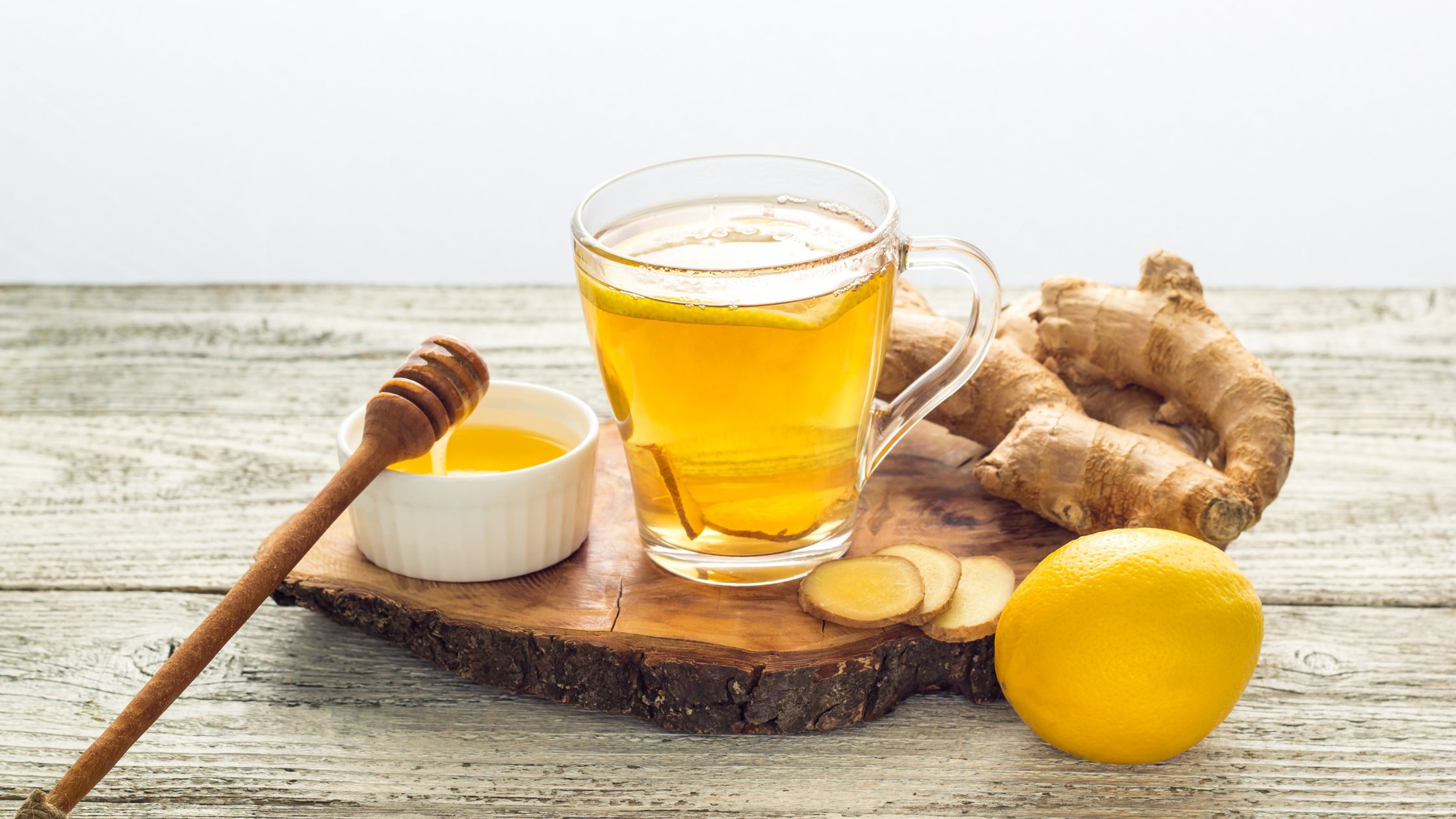
Is Tea Good for You? The Science Behind the Health Benefits of Tea
Tea is one of the most popular beverages in the world, and for good reason. It’s delicious, refreshing, and has a number of potential health benefits.
But is tea really good for you? And what type of tea is the best for your health?
Health Benefits of Tea
Tea contains a variety of compounds that have been shown to have health benefits, including:
- Antioxidants: Antioxidants help to protect your cells from damage caused by free radicals. Free radicals are unstable molecules that can contribute to the development of chronic diseases such as heart disease, cancer, and Alzheimer’s disease.
- Catechins: Catechins are a type of antioxidant found in tea that has been shown to boost metabolism, improve blood sugar control, and reduce inflammation.
- L-theanine: L-theanine is an amino acid found in tea that has been shown to reduce stress and anxiety, and improve cognitive function.
Uses of Green Tea

Green tea is one of the most popular types of tea, and it is also one of the most studied. Green tea has been shown to have a number of potential health benefits, including:
- Reduced risk of cancer: Green tea has been shown to reduce the risk of developing certain types of cancer, such as breast cancer, colorectal cancer, and prostate cancer.
- Improved heart health: Green tea can help to improve cholesterol levels and reduce blood pressure.
- Weight loss: Green tea can help to boost metabolism and promote weight loss.
- Improved brain function: Green tea can help to improve cognitive function and reduce the risk of developing Alzheimer’s disease.
Uses of Black Tea

Black tea is another popular type of tea, and it is also associated with a number of potential health benefits, including:
- Improved heart health: Black tea can help to improve cholesterol levels and reduce blood pressure.
- Reduced risk of stroke: Black tea has been shown to reduce the risk of developing a stroke.
- Increased alertness: Black tea contains caffeine, which can help to increase alertness and improve cognitive function.
- Improved gut health: Black tea contains polyphenols, which can help to promote the growth of beneficial bacteria in the gut.
Which is Better: Green Tea or Black Tea?
Both green tea and black tea offer a number of potential health benefits. However, there are some key differences between the two types of tea.
Green tea is less processed than black tea, and it contains higher levels of catechins. Catechins are a type of antioxidant that has been shown to have a number of health benefits, such as boosting metabolism and improving blood sugar control.
Black tea is more processed than green tea, and it contains higher levels of caffeine. Caffeine can help to increase alertness and improve cognitive function.
Ultimately, the best type of tea for you depends on your individual needs and preferences. If you are looking for a tea that is high in antioxidants and can help to boost your metabolism, then green tea is a good choice. If you are looking for a tea that can help to improve your alertness and cognitive function, then black tea is a good choice.
Which is Better: Green Tea or Mixed Tea?
Mixed tea is a combination of green tea and other ingredients, such as black tea, herbal ingredients, or fruits.
The health benefits of mixed tea will vary depending on the specific ingredients that are used. However, in general, mixed tea is likely to offer a similar range of health benefits to green tea.
Which is Better: Black Tea or Mixed Tea?
Mixed tea can be a good option for people who are looking for a more flavorful or interesting alternative to black tea. However, it is important to note that some mixed teas may contain added sugar or other unhealthy ingredients.
If you are looking for a mixed tea that is healthy, be sure to choose one that is made with natural ingredients and does not contain added sugar.
Black Tea Benefits
Black tea is a good source of antioxidants, which can help to protect your cells from damage. Black tea has also been shown to improve heart health, reduce the risk of stroke, and increase alertness.
Ginger Tea Benefits
Ginger tea is a popular folk remedy for nausea and indigestion. Ginger tea has also been shown to have anti-inflammatory properties and may help to reduce the risk of certain types of cancer.
Tea Benefits and Side Effects
Tea is a generally safe beverage for most people. However, there are some potential side effects of tea, such as anxiety, insomnia, and headaches. These side effects are more likely to occur if you consume large amounts of tea or if you are sensitive to caffeine.
If you experience any side effects after drinking tea, reduce your intake or stop drinking tea altogether.
The Black Tea Benefits and Side Effects
Black Tea
Black tea is one of the most popular beverages in the world, and for good reason. It’s delicious, refreshing, and packed with health benefits.
Benefits of black tea:
- Improves heart health: Black tea contains flavonoids, which are antioxidants that can help reduce inflammation and improve blood vessel function.
- Boosts alertness: Black tea contains caffeine, which can help improve alertness and focus.
- Promotes weight loss: Black tea can help boost metabolism and promote weight loss.
- Reduces the risk of cancer: Black tea contains antioxidants that can help protect against cancer.
Side effects of black tea:
- Anxiety: Black tea contains caffeine, which can cause anxiety in some people.
- Insomnia: Black tea contains caffeine, which can interfere with sleep.
- Headaches: Black tea contains caffeine, which can cause headaches in some people.
- Stomach upset: Black tea can irritate the stomach lining in some people.
The Ginger Tea Benefits and Side Effects
Ginger Tea
Ginger tea is a traditional herbal tea that is made from the ginger root. Ginger tea has been used for centuries to treat a variety of ailments, including nausea, vomiting, indigestion, and pain.

Benefits of ginger tea:
- Reduces nausea and vomiting: Ginger tea is effective at reducing nausea and vomiting, especially in pregnant women.
- Improves digestion: Ginger tea can help to improve digestion and relieve stomach upset.
- Reduces pain: Ginger tea has anti-inflammatory and analgesic properties, which can help to reduce pain.
- Boosts the immune system: Ginger tea contains antioxidants that can help to boost the immune system.
Side effects of ginger tea:
- Heartburn: Ginger tea can cause heartburn in some people.
- diarrhea: Ginger tea can cause diarrhea in some people.
- headaches: Ginger tea can cause headaches in some people.
Tea Benefits and Side Effects
Tea
Tea is one of the most popular beverages in the world, and for good reason. It’s delicious, refreshing, and packed with health benefits.
Benefits of tea:
- Improves heart health: Tea contains flavonoids, which are antioxidants that can help reduce inflammation and improve blood vessel function.
- Boosts alertness: Tea contains caffeine, which can help improve alertness and focus.
- Promotes weight loss: Tea can help boost metabolism and promote weight loss.
- Reduces the risk of cancer: Tea contains antioxidants that can help protect against cancer.
Side effects of tea:
- Anxiety: Tea contains caffeine, which can cause anxiety in some people.
- Insomnia: Tea contains caffeine, which can interfere with sleep.
- Headaches: Tea contains caffeine, which can cause headaches in some people.
- Stomach upset: Tea can irritate the stomach lining in some people.
Herbal Tea Benefits and Side Effects
Herbal Tea
Herbal tea is a type of tea that is made from the leaves, flowers, or other parts of plants. Herbal tea has been used for centuries to treat a variety of ailments, including anxiety, stress, and insomnia.

Benefits of herbal tea:
- Reduces anxiety: Herbal teas such as chamomile and lavender have been shown to reduce anxiety and promote relaxation.
- Improves sleep: Herbal teas such as chamomile and valerian root have been shown to improve sleep quality.
- Boosts the immune system: Herbal teas such as echinacea and elderberry have been shown to boost the immune system.
- Relieves pain: Herbal teas such as peppermint and ginger have been shown to relieve pain and inflammation.
Side effects of herbal tea:
- Allergic reactions: Some people may experience allergic reactions to certain herbal teas.
- Drug interactions: Some herbal teas can interact with certain medications. It is important to talk to your doctor before drinking herbal tea if you are taking any medications.
White Tea Benefits and Side Effects
White Tea
White tea is the least processed type of tea and is made from the young buds and leaves of the Camellia sinensis plant. It is native to China and has been consumed for centuries for its many health benefits.

Benefits of white tea
White tea is packed with antioxidants, which can help to protect your cells from damage. It is also a good source of catechins, which are compounds that have been shown to boost the immune system and improve heart health.
Here are some of the specific benefits of white tea:
- Reduces the risk of cancer: White tea contains antioxidants that can help to protect your cells from damage caused by free radicals. Free radicals are unstable molecules that can contribute to the development of cancer.
- Boosts the immune system: White tea contains catechins, which are compounds that have been shown to boost the immune system. Catechins can help to fight off infection and protect your body from disease.
- Improves heart health: White tea can help to improve heart health by lowering cholesterol levels and reducing the risk of blood clots.
- Promotes weight loss: White tea can help to promote weight loss by boosting metabolism and suppressing appetite.
- Improves oral health: White tea contains polyphenols, which are compounds that have been shown to improve oral health. Polyphenols can help to prevent plaque buildup and gum disease.
Side effects of white tea
White tea is generally safe for most people to consume. However, there are a few potential side effects to be aware of:
- Anxiety: White tea contains caffeine, which can cause anxiety in some people.
- Insomnia: White tea contains caffeine, which can also cause insomnia in some people.
- Stomach upset: White tea can cause stomach upset in some people, especially those with sensitive stomachs.
- Headaches: White tea can cause headaches in some people.
- Dizziness: White tea can cause dizziness in some people.
If you experience any of these side effects after consuming white tea, it is best to stop drinking it.
How much white tea should I drink?
It is recommended to drink 2-3 cups of white tea per day. This will provide you with the health benefits of white tea without experiencing any negative side effects.







